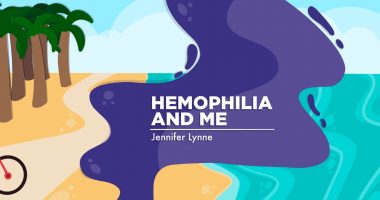Europe Grants Orphan Drug Status to CB 2679d to Prevent Hemophilia B Bleeding Episodes

European regulators have granted orphan drug status to CB 2679d, a hemophilia B therapy that Catalyst Biosciences developed to prevent bleeding episodes.
The therapy, known as ISU304 in South Korea, prevents bleeding by increasing hemophilia B patients’ level of a blood protein called Factor IX, which is deficient in the disease. The drug is injected, which many patients are likely to prefer over the more time-consuming and invasive IV administration of most hemophilia therapies.
At the moment the leading treatment for hemophilia B is recombinant Factor IX, which scientists engineer in a lab.
Although it is effective, recombinant Factor IX has a short half-life — that is, the time it takes for a drug to lose half its strength in the body. This means that doctors administer recombinant Factor IX to stop bleeding episodes, but not prevent them.
Europe’s orphan drug designation reduces the filing fees that treatment developers pay when applying for regulatory approval, makes them eligible for conditional marketing authorization, and gives them 10 years of exclusive marketing rights to their therapies.
The European Commission bestows the designation only on treatments for rare diseases — those affecting fewer than five patients per 10,000 people. In addition, the designation is only for drugs that could offer more benefits than existing therapies.
“The many benefits of orphan medicinal product designation include the potential for conditional marketing authorization and 10 years of market exclusivity,” Dr. Nassim Usman, president and chief executive officer of Catalyst, said in a press release.
“Hemophilia B is life-threatening and can be chronically debilitating for afflicted individuals,” he added. “With this important designation, we are optimistic that CB 2679d may provide a significant benefit over existing treatments that rely on frequent intravenous infusions [IV administrations] by providing simpler subcutaneous [injected] dosing and potentially, normalization of FIX activity.”
In preclinical-trial studies, CB 2679d proved a more effective treatment than other Factor IX products on the market or under development, said Catalyst, which is based in South San Francisco.
The company is collaborating with South Korea’s ISU Abxis on a Phase 1/2 clinical trial of the drug in patients with severe hemophilia B. ISU Abxis completed dosing the first patient in the trial in early June of 2017. The partners expect the results to be available by the end of 2017.
Once the Phase 1 portion of the trial is complete, ISU Abxis will have exclusive commercial rights to the therapy in Korea, which has bestowed Investigational New Drug status on it. Catalyst will continue to have development and commercial rights to the drug outside Korea.






